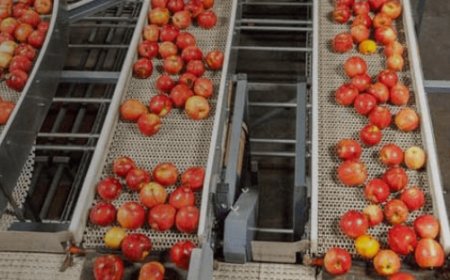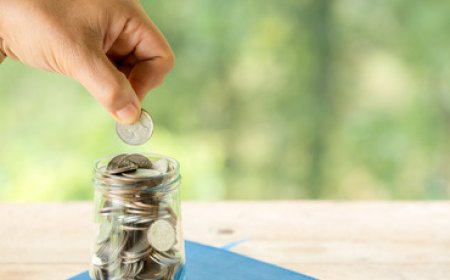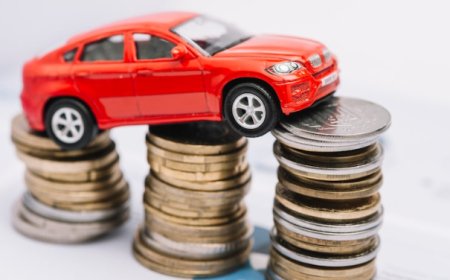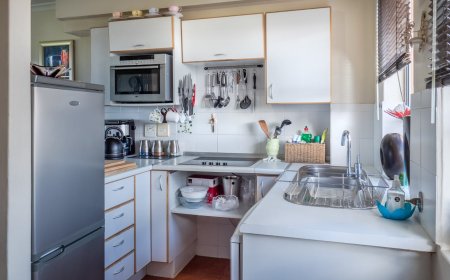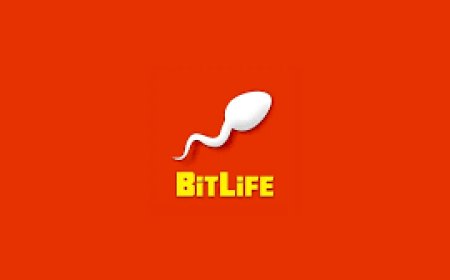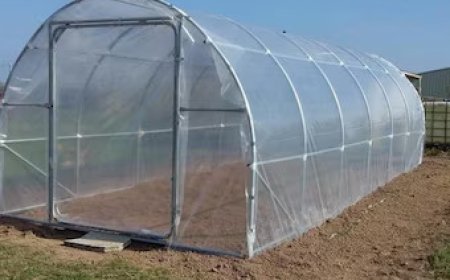How to Host Safe Backyard BBQs in Fort Worth
How to Host Safe Backyard BBQs in Fort Worth Fort Worth, Texas, is known for its wide-open skies, sprawling backyards, and deep-rooted barbecue culture. From the bustling urban neighborhoods of the Cultural District to the quiet cul-de-sacs of Tarrant County, residents eagerly gather outdoors during spring, summer, and early fall to enjoy smoky ribs, juicy burgers, and cold drinks under the Texas
How to Host Safe Backyard BBQs in Fort Worth
Fort Worth, Texas, is known for its wide-open skies, sprawling backyards, and deep-rooted barbecue culture. From the bustling urban neighborhoods of the Cultural District to the quiet cul-de-sacs of Tarrant County, residents eagerly gather outdoors during spring, summer, and early fall to enjoy smoky ribs, juicy burgers, and cold drinks under the Texas sun. But with record-breaking heatwaves, unpredictable thunderstorms, and increasing concerns about food safety and fire hazards, hosting a backyard BBQ in Fort Worth requires more than just a grill and a playlist. Hosting a safe backyard BBQ isn’t just about good food—it’s about protecting your guests, your property, and your community.
This guide provides a comprehensive, step-by-step roadmap to hosting safe, enjoyable, and legally compliant backyard BBQs in Fort Worth. Whether you’re a first-time host or a seasoned grill master, you’ll learn how to navigate local weather patterns, prevent common accidents, ensure food safety, and create an environment where everyone can relax without worry. With insights tailored to Fort Worth’s unique climate, regulations, and cultural norms, this tutorial ensures your next barbecue is not only memorable—but safe.
Step-by-Step Guide
1. Plan Your Event Around Fort Worth’s Weather Patterns
Fort Worth experiences long, hot summers with average high temperatures reaching 95°F (35°C) between June and August. Humidity levels can climb above 70%, making outdoor events physically taxing. Thunderstorms are common in late spring and early summer, often developing rapidly with little warning. Lightning strikes and sudden downpours have ended countless backyard gatherings.
Begin planning your BBQ by checking the National Weather Service’s Fort Worth office forecasts at least 72 hours in advance. Look for heat index values—when the heat index exceeds 105°F, the risk of heat exhaustion and heat stroke rises significantly. Schedule your event for early afternoon or late evening when temperatures dip slightly. Avoid hosting between 12 p.m. and 4 p.m. during peak heat months.
Have a backup plan. If your yard lacks a covered patio, rent a pop-up canopy or tent with sidewalls. Ensure it’s securely anchored with sandbags or weighted bases, not just stakes—Fort Worth’s clay soil can be hard and uneven, making stakes ineffective during wind gusts. Keep a weather radio or smartphone alert app (like the NOAA Weather Radar app) active during the event to monitor for sudden storms.
2. Choose and Position Your Grill Safely
Gas and charcoal grills are the heart of any Fort Worth BBQ, but improper placement is one of the leading causes of backyard fires. According to the Fort Worth Fire Department, over 200 residential grill-related fires are reported annually, mostly due to proximity to structures, dry grass, or flammable materials.
Place your grill at least 10 feet away from your house, garage, deck railings, overhanging branches, or any combustible surface. Never use a grill on a wooden deck unless it’s specifically rated for outdoor grilling and has a fire-resistant mat underneath. Avoid placing it under a pergola or near vinyl siding, which can melt or ignite at temperatures above 165°F.
For charcoal grills, use only approved charcoal starter fluid—never gasoline or lighter fluid from a gas can. Pour fluid only on cold coals before lighting, and never add more fluid to an already lit fire. For gas grills, inspect hoses and connections monthly for cracks or leaks. Apply a soapy water solution to connections and look for bubbles, which indicate a gas leak. If you detect a leak, shut off the gas immediately and do not attempt to light the grill until it’s repaired.
3. Prepare a Fire Safety Kit
Every Fort Worth backyard BBQ needs a fire safety kit. This isn’t optional—it’s essential. Your kit should include:
- A 10-pound ABC fire extinguisher (rated for grease, electrical, and wood fires)
- A large bucket of sand or a garden hose with a spray nozzle
- Heavy-duty fire-resistant gloves
- A metal lid or baking sheet to smother small grease fires
- A first aid kit with burn ointment and sterile gauze
Keep the extinguisher within arm’s reach of the grill—not tucked away in a shed or garage. Make sure at least one adult at the event knows how to use it. Many Fort Worth residents overlook this, assuming a garden hose is enough. But a hose may not be accessible during a fast-moving fire, and water can cause grease fires to spread. A fire extinguisher is your best first response.
Also, clear a 3-foot “no-flammable-zone” around the grill. Remove patio cushions, paper napkins, plastic drinkware, and dry leaves. Even a stray spark can ignite a pile of dry grass or a plastic tablecloth in seconds.
4. Handle Food Safely in High Temperatures
Fort Worth’s heat makes foodborne illness a serious risk. Bacteria like Salmonella and E. coli multiply rapidly between 40°F and 140°F—the “danger zone.” In summer, food left out for more than one hour can become unsafe. Two hours is the absolute maximum, and even then, only if the ambient temperature is below 90°F.
Use insulated coolers with ice packs to store raw meats, dairy, and prepared salads. Keep them closed as much as possible. Don’t rely on a single cooler for everything—use one for drinks and another for perishable foods to minimize temperature fluctuations.
Marinate meats in the refrigerator, never on the counter. If you’re using a marinade as a sauce, set aside a clean portion before it touches raw meat. Never reuse marinade that has contacted raw poultry or beef.
Use a digital meat thermometer. Don’t guess doneness. Chicken must reach 165°F, ground beef 160°F, and pork 145°F with a 3-minute rest. Many Fort Worth hosts rely on color or texture—this is dangerous. A burger that looks cooked may still harbor harmful bacteria.
Keep hot foods hot (above 140°F) using chafing dishes, slow cookers, or insulated serving trays. Cold foods should stay below 40°F. Discard any food left out longer than the recommended time, even if it looks fine.
5. Manage Alcohol and Hydration Responsibly
Alcohol consumption is common at Fort Worth BBQs, but it increases the risk of accidents, poor judgment, and dehydration. Alcohol is a diuretic—it causes your body to lose water faster, which is dangerous in extreme heat.
Always offer abundant non-alcoholic beverages: ice water, electrolyte drinks, unsweetened iced tea, and lemonade. Place water stations around the yard, not just near the grill. Consider adding slices of cucumber, lemon, or mint to encourage hydration.
Provide non-alcoholic alternatives for guests who prefer not to drink. Set a limit on alcohol servings if possible—offer drink tickets or pre-pour drinks into labeled cups. Never serve alcohol to minors, and be alert to signs of intoxication: slurred speech, unsteady gait, confusion, or vomiting.
Designate a sober host or assign someone to monitor alcohol consumption. If someone appears impaired, stop serving them and offer water, a shaded resting area, and a ride home if needed. Never let someone drive after drinking, even if they insist they’re “fine.”
6. Create a Guest-Friendly Layout
A well-planned layout reduces tripping hazards, prevents overcrowding, and ensures easy access to safety equipment. Map out your backyard before the event:
- Keep walkways clear of extension cords, hoses, and toys.
- Use non-slip mats near the grill and food tables.
- Provide ample seating with shade—umbrellas, canopies, or trees.
- Place trash and recycling bins in visible, accessible locations to discourage littering.
- Keep pets confined to a separate area; even friendly dogs can cause accidents near grills or food.
Consider lighting for evening events. String lights are decorative, but they must be rated for outdoor use and kept away from water sources. Use solar-powered path lights along walkways to prevent falls. Avoid candles or open flames near seating areas.
7. Communicate Safety Rules Clearly
Don’t assume guests know the rules. Verbally welcome everyone with a brief safety reminder:
“Welcome! Please keep children and pets away from the grill. Water is available by the porch, and the fire extinguisher is right next to the grill. If you need help with anything, just ask.”
Place small signs near the grill: “Keep Children 10 Feet Away,” “No Flammable Materials Near Grill,” and “Use Thermometers—Don’t Guess Doneness.” These reinforce safety without sounding confrontational.
For families with young children, set up a designated play zone with shaded seating, water toys, and non-breakable dishes. Remind guests that the grill and food prep area are not play zones.
Best Practices
1. Know Your Local Ordinances
Fort Worth has specific fire codes and noise ordinances that apply to backyard gatherings. While residential BBQs are generally permitted, some neighborhoods have homeowner association (HOA) rules that restrict grill types, operating hours, or open flames.
Check the City of Fort Worth’s Fire Prevention Division website for current grill regulations. Charcoal grills are permitted on patios and decks if properly maintained. Propane tanks larger than 100 pounds require special permits and cannot be stored on residential property without approval.
Noise ordinances prohibit amplified sound after 10 p.m. on weekdays and 11 p.m. on weekends. If you plan to play music, keep volume moderate after sunset. Many residents appreciate quiet evenings, especially in densely packed neighborhoods like Northside on Lamar or Westover Hills.
2. Prepare for Allergies and Dietary Restrictions
Food allergies are common. Always ask guests in advance about allergies to nuts, shellfish, dairy, gluten, or soy. Label dishes clearly: “Contains Peanuts,” “Gluten-Free,” “Dairy-Free.”
Use separate utensils, plates, and serving spoons for allergen-free dishes to prevent cross-contamination. Even a trace of peanut residue on a tongs can trigger a severe reaction.
Offer plant-based and vegetarian options. Many guests, including those with ethical or health concerns, appreciate grilled portobello mushrooms, veggie skewers, or black bean burgers. Don’t assume everyone eats meat—Fort Worth’s diverse population includes many who follow plant-forward diets.
3. Protect Against Sun Exposure
Fort Worth’s UV index often reaches “extreme” levels (11+) during summer. Prolonged exposure can lead to sunburn, heatstroke, and long-term skin damage.
Provide sunscreen (SPF 30 or higher) in dispensers near entrances and restrooms. Encourage guests to reapply every two hours. Offer wide-brimmed hats and UV-blocking sunglasses for sale or as giveaways.
Set up shaded areas with umbrellas, canopies, or trees. If possible, position seating so guests aren’t facing direct sunlight during peak hours. Consider misting fans or portable evaporative coolers to lower ambient temperature by up to 15°F.
4. Manage Waste and Recycling Responsibly
Fort Worth has strict recycling rules. Aluminum foil, clean plastic containers, glass bottles, and cardboard are all recyclable—but grease-soaked paper plates and napkins are not.
Set up clearly labeled bins: “Recycling,” “Trash,” and “Compost” (if you have a backyard compost system). Avoid single-use plastics when possible. Use reusable plates, cups, and cutlery to reduce waste and impress environmentally conscious guests.
Dispose of charcoal ashes only after they’ve cooled completely—this can take 48 hours. Never dump hot ashes into a trash can or compost bin. Place cooled ashes in a metal container and dispose of them with regular trash.
5. Have a Plan for Emergencies
Accidents happen. A child may fall, someone may have an allergic reaction, or a grill fire may flare up. Prepare for the unexpected:
- Post emergency numbers visibly near your phone or on a whiteboard: 911, your nearest hospital (Texas Health Harris Methodist Hospital or Cook Children’s), and a trusted neighbor’s number.
- Keep a list of guests’ medical conditions and allergies in your phone or on a clipboard.
- Have a charged power bank for phones in case of outages.
- Designate a “safety captain” who knows where everything is and can respond calmly if needed.
For guests with mobility issues, ensure pathways are wide enough for wheelchairs or walkers. Remove rugs, cords, and uneven pavement. A safe BBQ is inclusive BBQ.
Tools and Resources
1. Essential Equipment Checklist
Before your BBQ, verify you have these items:
- Gas or charcoal grill with clean grates
- Meat thermometer (digital, instant-read)
- 10-pound ABC fire extinguisher
- Large bucket of sand or garden hose
- Insulated coolers with ice packs
- Disposable or reusable plates, cups, napkins (BPA-free and compostable if possible)
- Long-handled grilling tools (spatula, tongs, brush)
- Heavy-duty gloves and apron
- Pop-up canopy or umbrella for shade
- Outdoor lighting (solar or LED)
- Trash and recycling bins
- Hand sanitizer and wet wipes
- First aid kit with burn gel and antiseptic
2. Recommended Apps and Websites
Use these trusted resources to stay informed:
- Noaa.gov – National Weather Service Fort Worth forecasts
- FortWorthTexas.gov/Fire – City fire codes and grill regulations
- FDA.gov/food-safety – Safe food handling guidelines
- MyFoodSafety (app) – Tracks food storage times and temperatures
- UV Index Forecast (EPA app) – Real-time UV levels for Fort Worth
- Nextdoor – Check neighborhood alerts for storm warnings or noise complaints
3. Where to Buy Supplies in Fort Worth
Local stores offer quality, reliable equipment:
- Home Depot – Fire extinguishers, grills, canopies, and outdoor lighting
- Walmart – Disposable tableware, coolers, sunscreen, and thermometers
- Tractor Supply Co. – Sandbags, heavy-duty gloves, and outdoor safety gear
- Whole Foods Market – Organic, allergen-free food options
- Local Farmers Markets – Fresh produce, local meats, and artisanal sauces
Supporting local vendors not only improves the quality of your BBQ—it strengthens the Fort Worth community.
4. Recommended Reading
Deepen your knowledge with these resources:
- The Barbecue Bible by Steven Raichlen – Techniques for safe, flavorful grilling
- Food Safety for the Home Cook by Dr. Michael T. Osterholm – Science-backed food handling
- Outdoor Living in Texas by Texas A&M AgriLife Extension – Climate-specific outdoor safety
Real Examples
Example 1: The Smith Family BBQ – Avoiding a Heat Emergency
Last July, the Smiths hosted their annual backyard BBQ for 30 guests in the Alliance area. They planned for 98°F heat and a heat index of 112°F. Instead of serving food at noon, they started at 5 p.m. They set up three misting fans, placed water stations every 20 feet, and provided free hats and sunscreen. One guest, a 72-year-old man with diabetes, began feeling dizzy. The host immediately moved him to a shaded area, offered water, and called his daughter. Because they were prepared, the situation was handled calmly and without medical intervention.
“We thought we were just having a party,” said Mrs. Smith. “But when you’re in Texas, you have to plan like you’re preparing for a storm.”
Example 2: The Rivera Family – Preventing a Grill Fire
In May, the Riveras hosted a Cinco de Mayo BBQ in the Southside on Lamar neighborhood. Their charcoal grill was placed just 6 feet from their vinyl fence. A gust of wind blew a spark onto the dry grass. The fire caught quickly.
Thankfully, their 10-year-old daughter remembered the fire extinguisher from a school safety demo. She grabbed it and used it before the fire spread. The fence was scorched, but no one was hurt.
“We didn’t know how close we were to disaster,” said Mr. Rivera. “Now we keep a 15-foot buffer, and we check the weather every time we grill.”
Example 3: The Hendersons – Managing Allergies with Care
The Hendersons host a large, diverse BBQ every year. One guest has a severe peanut allergy. Instead of serving peanut butter cookies, they made a special batch of sunflower seed butter treats. They labeled every dish and used color-coded serving utensils: green for allergen-free, red for others.
They also provided a separate prep table for the allergen-free dishes. No cross-contamination occurred. The guest later emailed: “This was the first BBQ I ever felt truly safe at. Thank you.”
Example 4: The Park Family – Noise and Neighbor Relations
The Parks live in a quiet, established neighborhood near the Trinity River. They planned a loud, music-filled BBQ on a Saturday night. Neighbors complained about the noise after 10:30 p.m. The city sent a warning letter.
The next year, the Parks lowered the volume after 9 p.m., used directional speakers pointed away from homes, and invited neighbors to join. They even sent a note with the invitation: “We love our neighborhood. Please let us know if the music gets too loud—we’ll turn it down.”
Result? No complaints. Several neighbors brought dishes and joined the party. Community trust grew.
FAQs
Can I use a propane grill on my apartment balcony in Fort Worth?
Propane grills are generally prohibited on apartment balconies due to fire codes. Most apartment complexes in Fort Worth ban open-flame cooking on balconies. Check your lease agreement and building rules. Electric grills are often allowed, but always confirm with management.
How long can food sit out during a Fort Worth summer BBQ?
Food should not sit out for more than one hour if the temperature is above 90°F. At lower temperatures (below 90°F), two hours is the maximum. Always keep cold food cold and hot food hot. When in doubt, throw it out.
Do I need a permit to host a backyard BBQ in Fort Worth?
No, you do not need a permit for a private backyard BBQ. However, if you plan to charge admission, sell alcohol, or use amplified sound beyond city limits, you may need special permissions. Always check with the City of Fort Worth’s Permitting Office if your event exceeds 50 guests or involves commercial elements.
Is it safe to use a grill under a covered patio?
Only if the patio is specifically designed for grilling and has adequate ventilation. Most covered patios are not safe for charcoal or gas grills. Grease smoke and heat can damage roofing, trigger smoke alarms, or ignite flammable materials. Always maintain a 10-foot clearance from any structure.
What should I do if someone gets a burn?
Immediately cool the burn under running cool (not icy) water for 10–15 minutes. Do not apply butter, oil, or toothpaste. Cover with a sterile, non-stick bandage. Seek medical attention for burns larger than the size of your palm, or if the skin is white, charred, or blistered.
Can I bring my dog to the BBQ?
Yes—but only if they are well-behaved and kept away from the grill, food tables, and trash. Many foods are toxic to dogs: onions, garlic, grapes, chocolate, and xylitol (in sugar-free products). Keep a separate, safe area for pets, and inform guests to avoid feeding them.
What’s the best way to dispose of charcoal ashes?
Let ashes cool completely for at least 48 hours. Place them in a metal container with a lid. Do not dispose of in plastic bags or near dry grass. Once cool, they can go in your regular trash. Never dump hot ashes in a compost bin or recycling container.
How do I prevent flies and insects around the food?
Use insect-repelling candles or citronella torches placed away from seating areas. Cover food with mesh domes or lids until serving. Keep trash bins tightly sealed. Avoid sweet drinks or fruits uncovered for long periods. Consider hiring a professional pest control service if your yard has recurring insect issues.
Conclusion
Hosting a backyard BBQ in Fort Worth is more than a tradition—it’s a celebration of community, culture, and the joy of outdoor living. But with great gatherings come great responsibilities. The same Texas sun that warms your ribs can also scorch skin. The same grill that brings flavor to your food can become a fire hazard. The same warm hospitality that defines Fort Worth can be undermined by poor planning.
This guide has equipped you with the knowledge to host a safe, thoughtful, and unforgettable BBQ. From navigating weather extremes and fire safety protocols to respecting dietary needs and neighborhood norms, every step you take protects your guests and honors your community.
Remember: a great BBQ isn’t measured by the number of guests or the quantity of meat—it’s measured by how many people left feeling safe, well-fed, and cared for. Whether you’re grilling on a suburban lawn or a downtown patio, the principles remain the same: prepare, protect, and prioritize.
So fire up the grill, turn on the music, and invite your neighbors. But before you do—check the forecast, clear the space, test your thermometer, and keep a fire extinguisher close. Because in Fort Worth, the best BBQs aren’t just the smokiest—they’re the safest.





